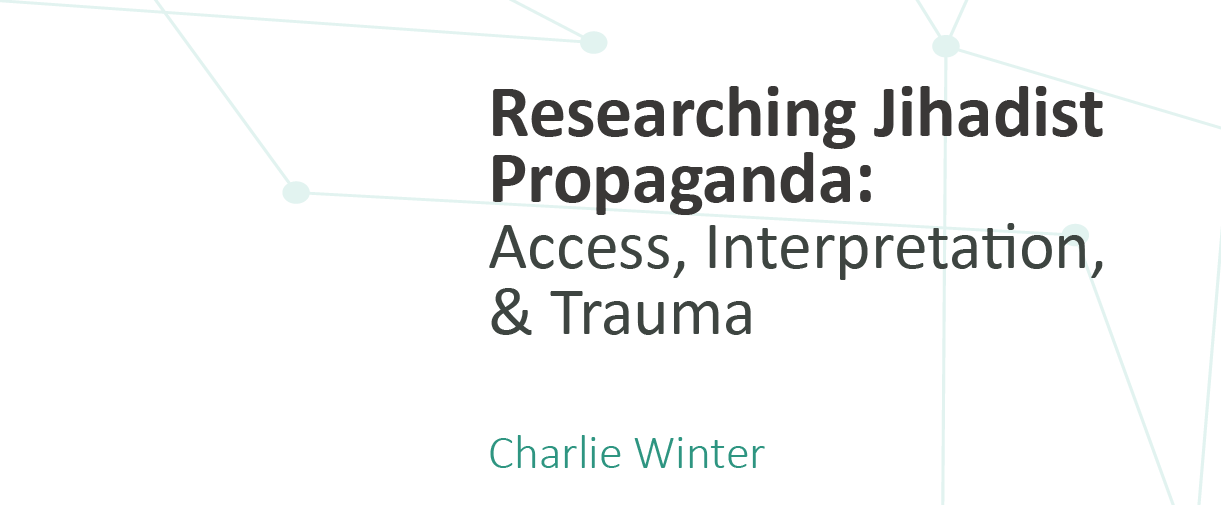Researching Jihadist Propaganda: Access, Interpretation, and Trauma
Researching Violent Extremism Edited Volume Chapter

Abstract
This chapter explores three key challenges that arise in the context of research on violent extremist propaganda. While this chapter is focused specifically on research on violent extremist materials from jihadist groups, including the Islamic State (IS) and al-Qaeda (AQ), its lessons may be of use in research on other types of violent extremist propaganda. The chapter has three sections. The first addresses the fact that most primary sources in this area are difficult to access for large audiences. This is a significant barrier to entry for most researchers and means that those who do have access to online violent extremist jihadist networks are beholden to accurately represent their observations. The next section deals with issues associated with intended meanings, polysemy, and subjectivity, addressing the issues that arise in analysis of violent extremist content. The last section focuses on trauma and the potential for research on IS, AQ, and other extremist propaganda to cause lasting psychological harm to researchers. This section also returns to the issue of researcher responsibility, specifically regarding when and how to make primary source materials available to others. This chapter aims to provide researchers of violent extremism with a set of baseline considerations to take into account early in the research process, especially in the data collection and methodology selection stages.
Suggested citation:
Winter, Charlie. Researching Jihadist Propaganda: Access, Interpretation, and Trauma. Washington, D.C.: RESOLVE Network, 2019. https://doi.org/10.37805/rve2019.1.